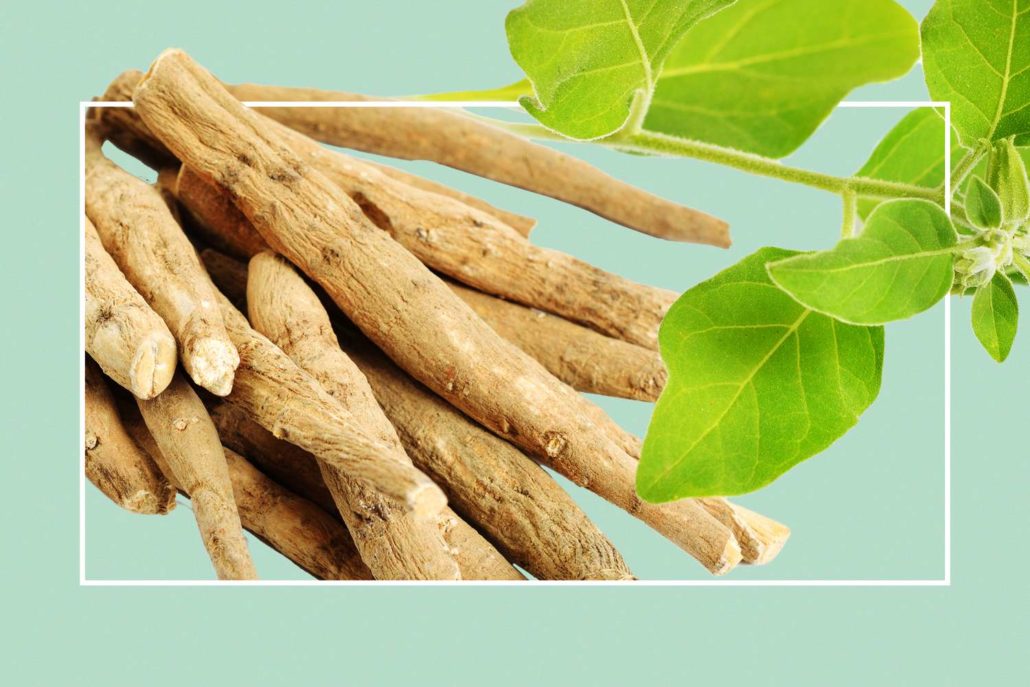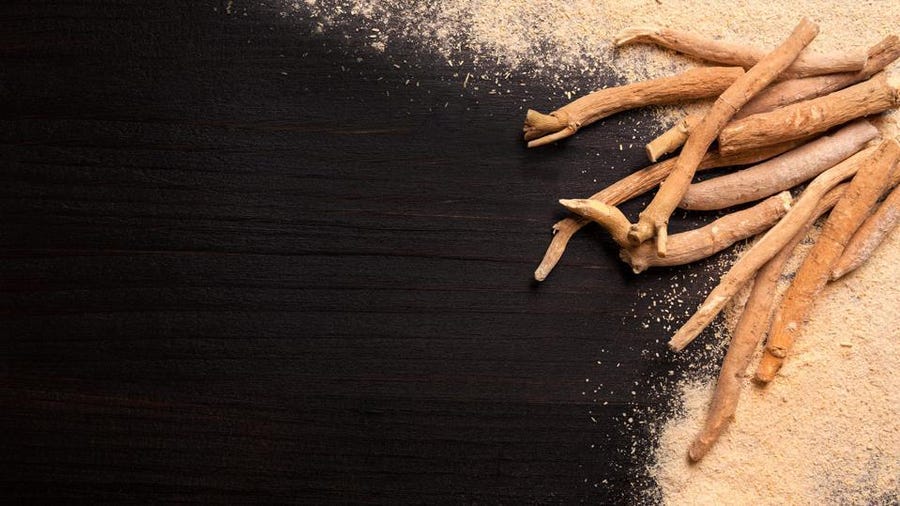Ashwagandha and Alcohol
Ashwagandha is an adaptogen that mixes well with alcohol. It has anti-anxiety outcomes that are synergistic with alcohol, so you will need less of each to experience the calming effects of each
Taking Ashwagandha and Alcohol Effects
Ashwagandha is an adaptogen that blends well with alcohol. It has anti-anxiety outcomes that are synergistic with alcohol, so you will need less of each to experience the relaxing effects of each
Ashwagandha is helpful when you want to be in a relaxed and pleasant mood, but would instead limit your alcohol intake. Some have a decreased urge to persist in drinking alcohol when they take Ashwagandha before drinking. And from what base on that, there isn’t any negative interaction between them, and you will only experience positive results mixing the two.
It has been shown to help reduce anxiety and depression during alcohol withdrawal. In one study, its anti-anxiety effects were similar to diazepam, an anti-anxiety medication.
So when you undergo anxiety and depression after drinking alcohol, It is recommended to take Ashwagandha the next morning. It will definitely help you manage and overcome any alcohol withdrawal much easier.
Ashwagandha and Alcohol Interactions
Ashwagandha and Alcohol were discovered to ease alcohol withdrawal anxiety in a dose-dependent manner as well as Shilajit. These herbs alone or in a mixture also reduced ethanol intake and raised water intake, particularly after 21 days of chronic administration.
These central nervous systems engaged herbs alone or in a mixture reduced both alcohol dependence and withdrawal thus showing favorable anti-addictive potential.
What is Ashwagandha (Withania Somniferaand)?
Ashwagandha (Withania somnifera) is a herbaceous shrub whose root is widely used in Ayurveda, the Indian standard method of medicine. Ashwagandha offers aid during stressful periods, gives you inner peace, and increases your vitality. It is also called ‘Indian ginseng’ because its adaptogenic properties resemble those of Chinese ginseng.
The roots of the bush include different alkaloids such as anaphoric, anhydride, cuscohygrine, withaferin A, and whitasomniferanolide. They also have the active ingredients of ashwagandha: withanolides.
These features seem to function – they help your body respond more resiliently to the results of stressful periods – on the main part of Panax ginseng from China or Korea. This is why ashwagandha is also called “Indian ginseng.” Withanolide is seen in all plants of the nightshade family, but the highest concentrations are found in ashwagandha.
Skip To:
- Taking Ashwagandha and Alcohol Effects
- Ashwagandha and Alcohol Interactions
- What is Ashwagandha (Withania Somniferaand)?
- FACT SHEET
- What does Ashwagandha use for?
- Ashwagandha Side Effects
- Alcohol and Ashwagandha Side Effects
- How long after taking Ashwagandha can you drink Alcohol?
- Ashwagandha Withdrawal
- Ashwagandha and Alcohol Withdrawal
- Alcohol Interactions with Ashwagandha
- Overdose on Ashwagandha and Alcohol
Learn More:
- Morphine Detox
- Is Alcoholism a Disease?
- Mixing Prescription Drugs with Alcohol
- Drug Overdose Symptoms

Get Help. Get Better. Get Your Life Back.
Searching for Accredited Drug & Alcohol Rehab Centers Near You? Or Mental Health Support?
Even if you have failed previously, relapsed, or are in a difficult crisis, we stand ready to support you. Our trusted behavioral health specialists will not give up on you. Call us when you feel ready or want someone to speak to about therapy alternatives to change your life. Even if we cannot assist you, we will lead you wherever you can get support. There is no obligation. Call our hotline today.
FREE Addiction Hotline – Call 24/7Ashwagandha / Withania Somniferaand Drug Facts
What is ashwagandha made of?
The Latin name for ashwagandha is Withania somnifera, and the herb contains a very high concentration of withanolides and withanolide glycoside (aka withanosides), the bioactive compound responsible for the majority of its benefits.
Ashwagandha holds the most prominent place among all the Ayurvedic ‘Rasayana’ herbs. Ashwagandha powder (churna) is usually consumed by mixing it with almond milk coconut milk or water. Various studies have shown that Ashwagandha has a beneficial effect on different systems of the body.
What is the scientific name of ashwagandha?
The scientific name of Ashwagandha is Withania Somnifera. In Latin, the meaning of Somnifera species is ‘sleep inducing’. Ashwagandha, Ashvagandha, Gandhapatri, Ashvakandika, Palashaparni
Ashwagandha Dosage
Ashwagandha (Withania Somnifera) dosage varies from 250 mg to 6 grams as per health condition and age group. Its maximum dosage is 12 grams per day.
Thus, it can be said that ashwagandha capsules are safe to use and had no ill effects on overall health. Up to 4 grams of ashwagandha is considered safe and non-toxic for humans.
Ashwagandha is considered relatively safe for most people. However, it’s not appropriate for everyone, so it’s important to talk with a healthcare professional before adding ashwagandha to your routine.
9 Proven Health Benefits of Ashwagandha
- May help reduce stress and anxiety
- May benefit athletic performance
- May reduce symptoms of some mental health conditions
- May help boost testosterone and increase fertility in men
- May reduce blood sugar levels
- May reduce inflammation
- May improve brain function, including memory
- May help improve sleep
- Relatively safe and widely available
Ashwagandha Churna (Powder) Dosage
The reference dosage of Ashwagandha Churna (powder) is as follows.
| Infants (Up To 1 year) 250 mg * | |
| Children (1 to 3) 500 mg * | |
| Children (4 to 10) 750 mg * | |
| Children (Above 10) 1000 mg * | |
| Adults 3000 mg * | |
| Pregnancy 2000 mg * | |
| Geriatric (Old age) 2000 mg * | |
| Maximum Possible Dosage 12 grams per day (in divided doses) | |
| * Twice a day with almond milk or coconut milk |
What does Ashwagandha use for?
Ashwagandha has chemicals that might help calm the brain, reduce swelling, lower blood pressure, and alter the immune system. Since Ashwagandha is traditionally used as an adaptogen, it is used for many conditions related to stress. Adaptogens are believed to help the body resist physical and mental stress.
Ashwagandha Side Effects
Ashwagandha (Withania Somnifera) is considered secure for most people, but the infrequent and mild side effects of Ashwagandha may appear in some individuals. These side effects typically occur when Ashwagandha is taken in larger doses (i.e. above 10 grams per day). Large doses of Ashwagandha can result in the following side effects.
- Stomach Upset
- Loose Stools
- Male Breast or Gynecomastia – very rare, but it may occur when Ashwagandha powder is used in a larger dosage (more than 10 grams per day) for several months (more than 6 months).
Withania Somnifera in its natural shape (Ashwagandha Churna or powder or decoction) is safer than ashwagandha extract derived through current methods. However, water extract formulated through traditional techniques by boiling water with Ashwagandha powder is also likely safer.


Get Your Life Back
Find Hope & Recovery. Get Safe Comfortable Detox, Addiction Rehab & Mental Health Dual Diagnosis High-Quality Care at the We Level Up Treatment Centers Network.
Hotline (877) 378-4154Alcohol and Ashwagandha Side Effects
Alcohol and Ashwagandha Side Effects
Alcohol and Ashwagandha are both used to treat a variety of health conditions. When taken in combination, however, the risk of side effects increases. Here are some facts about alcohol and ashwagandha:
- Alcohol can interact with Ashwagandha, leading to increased blood pressure or heart rate.
- Drinking alcohol while taking Ashwagandha may cause nausea and vomiting, which can be dangerous if you have high blood pressure or are pregnant.
- Drinking alcohol while taking Ashwagandha may increase your risk for liver damage from the drug’s antinausea effects (coughing up excess stomach acid).
Ashwagandha may cause sedation. Avoid consuming alcohol while taking Ashwagandha as it may cause excessive sleepiness. Avoid beer, wine, and mixed drinks (alcohol) while taking this product. It may cause you to become sleepy or drowsy.
Humans have toiled with hangovers from the beginning of alcohol usage in Ancient Egypt, even in the age of craft beer crazes and Aperol spritzes. In that point, alcohol may relax you and make you feel terrific, but if you drink too much, you’ll unavoidably feel awful the next morning (or afternoon). And regrettably, drinking tends to cause you feel worse as you age.
Ashwagandha has chemicals that might help soothe the brain, decrease swelling, lower blood pressure, and alter the immune system. Since ashwagandha is traditionally used as an adaptogen, it is used for multiple conditions related to stress. Adaptogens are supposed to help the body resist physical and mental stress.
Side effects of mixing Alcohol and Ashwagandha can include
- Dizziness
- Sluggishness
- Drowsiness
- Shortness of breath
- Itching
- Hives
- Palpitations
- Respiratory Depression
- Cardiac Arrest
- Coma
- Seizures
- Death
When combined, the two substances can cause a person to become drowsy or sleepy. It can also affect their vision and make it difficult for them to concentrate. This can be dangerous for those who use these substances regularly because it could lead to accidents or injuries.
More serious side effects include respiratory depression, which means that the body cannot get enough oxygen, causing death by suffocation; coma; liver damage; and heart failure. Alcohol can also cause blood pressure to drop, resulting in fainting spells or even death if left untreated.
The combination of Ashwagandha and Alcohol may also lead to other health problems such as liver damage and heart attacks, as well as slowed breathing.
The side effects of alcohol and ashwagandha are very similar: They both slow down your CNS and cause drowsiness. In addition, both substances can cause nausea and vomiting if taken in large doses or mixed with other medications such as antihistamines or painkillers.
Alcohol can also make it harder for you to fall asleep at night because it affects how well your body’s internal clock works (this includes circadian rhythms).
How long after taking Ashwagandha can you drink Alcohol?
The answer to the question is, It depends. Ashwagandha is a natural medicine that has many benefits, including the ability to help with stress and anxiety. Because of this, it’s often thought of as a “feel-good” herb—and for good reason! However, as with any medication or supplement, people should work with their doctor before taking Ashwagandha if they have any existing conditions or medications.
In general, you can drink alcohol after taking Ashwagandha for about one week. One week is not enough time for the herb to be fully absorbed into your system and start working on your symptoms; it’s just enough time to get some general benefits from the herb without having any negative effects on your body or mind.
You can drink alcohol after taking Ashwagandha if you feel like your symptoms are improving significantly. If you’re still experiencing side effects from the herb—such as diarrhea or nausea—you should stop using it until they go away completely.
There are both water-soluble and fat-soluble compounds in Ashwagandha. The water-soluble ones leave your body in 2 to 3 days and the fat-soluble compounds take up to a month to leave your body.
First-class Facilities & Amenities
World-class High-Quality Addiction & Mental Health Rehabilitation Treatment
Rehab Centers TourRenowned Addiction Centers. Serene Private Facilities. Inpatient rehab programs vary.
Addiction Helpline (877) 378-4154Proven recovery success experience, backed by a Team w/ History of:
15+
Years of Unified Experience
100s
5-Star Reviews Across Our Centers
10K
Recovery Success Stories Across Our Network
- Low Patient to Therapist Ratio
- Onsite Medical Detox Center
- Comprehensive Dual-Diagnosis Treatment
- Complimentary Family & Alumni Programs
- Coaching, Recovery & Personal Development Events
Ashwagandha Withdrawal
Ashwagandha is one of the most useful herbs with therapeutic properties that developed in the Indian subcontinent. You could use herbal prescriptions to ease anxiety and treat insomnia. The digestive disorder is a downside to Ashwagandha.
The most typical symptoms of digestive disorders include bleeding, bloating, constipation, diarrhea, heartburn, pain, nausea, and vomiting.

Taking an ashwagandha supplement will always be useful. As everything has a reverse side, ashwagandha withdrawal can bring some side effects that need medical attention.
Though adaptogens current in ashwagandha will calm your mind, or treat anxiety; but, the withdrawal symptoms can be troublesome for many people.
The problem is that they may encounter dizziness, light-headedness, nausea, low blood sugar levels, and liver problems in the worst cases. Perhaps, it is safe to ingest for about three months.
It is still better to take guidance from the doctor. Moreover, you should not leave ashwagandha instantly. Gradually, decrease its consumption and withdraw its intake.
Though, it is safe for a precise time; ashwagandha can be dangerous on being taken for a long time. It is better to consult with a doctor before taking Ashwagandha in any form.
If you intend to withdraw the use of ashwagandha, it is more useful to do so in an incremental manner. Its sedative properties will not let you work your daily work schedule.
Apart from this, you may encounter diarrhea, liver issues, brain zaps, and excessive fatigue.
” I took the first bottle and felt absolutely fantastic: I sleep better, lost weight, no stress. One bottle later, I stopped taking this and the effects were very similar to benzo withdrawal.
I was puzzled why this happened and then saw the effects of Ashwagandha’s withdrawal is absolutely horrifying. Ashwagandha also works on your GABA receptor.
Some of the negative reviews were, they complain about insomnia. The reason is that it works until it stops. For some people, it is a lot sooner than later. At about 1 month in, I noticed my sleep was getting worse and worse. As a result, I upped my caffeine intake A LOT.
I went from one cup daily to five and it completely stopped working. My doctor told me to stop the supplement and so I did. Boom! I felt like I was going to die. ”
The following is a list of my symptoms:
1. insomnia
2. severe memory problems
3. severe fatigue
4. hot and cold flue like symptoms
5. depression

Ashwagandha and Alcohol Withdrawal
In modern culture, many people struggle with alcoholism. There are a variety of reasons that might affect someone’s choice to seek treatment for alcoholism, but shame and humiliation may push some people to self-medicate.1 As with many other ailments, there are over-the-counter herbal medicines that make this claim.
St. John’s wort (Hypericum perforatum), Ashwagandha (Withania somnifera), and kudzu are three herbal supplements frequently used as self-treatment choices for alcoholism (Pueraria lobata). Although many pharmacists are somewhat aware of these herbal supplements, their knowledge is frequently focused on possible side effects and drug-drug interactions.
Alcohol Interactions with Ashwagandha
Both alcohol and ashwagandha are known to have many benefits. However, there are some differences between the two that you should be aware of before using them.
- Alcohol is generally considered to be a depressant, while ashwagandha is an adaptogen. Alcohol can cause drowsiness, while ashwagandha is said to improve alertness and energy levels.
- Alcohol can cause hangovers if consumed in excess, while ashwagandha does not have this effect on the body. It can be used to treat stress and anxiety disorders too!
Ashwagandha (Withania somnifera) helps the body adjust to stress by increasing resistance to it. It has been shown to decrease inflammation in both humans and animals, and it may also help regulate blood sugar levels. It can be taken as a supplement, but it is also available in capsules and tablets.
World-class, Accredited, 5-Star Reviewed, Effective Addiction & Mental Health Programs. Complete Behavioral Health Inpatient Rehab, Detox plus Co-occuring Disorders Therapy.
CALL (877) 378-4154End the Addiction Pain. End the Emotional Rollercoaster. Get Your Life Back. Start Drug, Alcohol & Dual Diagnosis Mental Health Treatment Now. Get Free No-obligation Guidance by Substance Abuse Specialists Who Understand Addiction & Mental Health Recovery & Know How to Help.
Overdose on ashwagandha and alcohol
Overdose of ashwagandha and alcohol is alarmingly normal and can often be deadly. In the case of an Overdose of ashwagandha or if you are concerned after mixing ashwagandha and alcohol call a first responder or proceed to the nearest Emergency Room immediately.
If you are anxious about someone who has taken too much ashwagandha or mixed alcohol with ashwagandha then call a first responder or take them to get quick medical help. The best place for you or someone you care about in the case of a medical emergency is under medical care. Be sure to tell the medical team that there is a mix of ashwagandha and alcohol. The mixture of alcohol and ashwagandha increases the likelihood that a person would be transferred to intensive care.
Experience Transformative Recovery at the We Level Up Treatment Center.
See our authentic success stories. Get inspired. Get the help you deserve.



Start a New Life
Begin with a free call to an addiction & behavioral health treatment advisor. Learn more about our dual-diagnosis programs. The We Level Up treatment center network delivers various recovery programs at each treatment facility. Call to learn more.
- Personalized Care
- Caring Accountable Staff
- World-class Amenities
- Licensed & Accredited
- Renowned w/ 5-Star Reviews
We’ll Call You
Ashwagandha and Alcohol Video
Welcome to our in-depth exploration of the intriguing relationship between Ashwagandha (Withania somnifera) and alcohol. Ashwagandha, a revered herb in Ayurveda, is renowned for its stress-relieving properties, inner peace induction, and vitality boost. Often referred to as ‘Indian ginseng,’ it shares adaptogenic qualities with its Chinese counterpart, Panax ginseng.
.
Search Drug & Alcohol Rehab / Detox & Mental Health Topics & Resources
Sources
[1]. “Withania somnifera“. Germplasm Resources Information Network (GRIN). Agricultural Research Service (ARS), United States Department of Agriculture (USDA). Retrieved 2011-10-29.[2] Pati, P. K.; Sharma, M.; Salar, R. K.; Sharma, A.; Gupta, A. P.; Singh, B. (2009). “Studies on leaf spot disease of Withania somnifera and its impact on secondary metabolites”. Indian Journal of Microbiology. 48 (4): 432–437. doi:10.1007/s12088-008-0053-y. PMC 3476785. PMID 23100743.